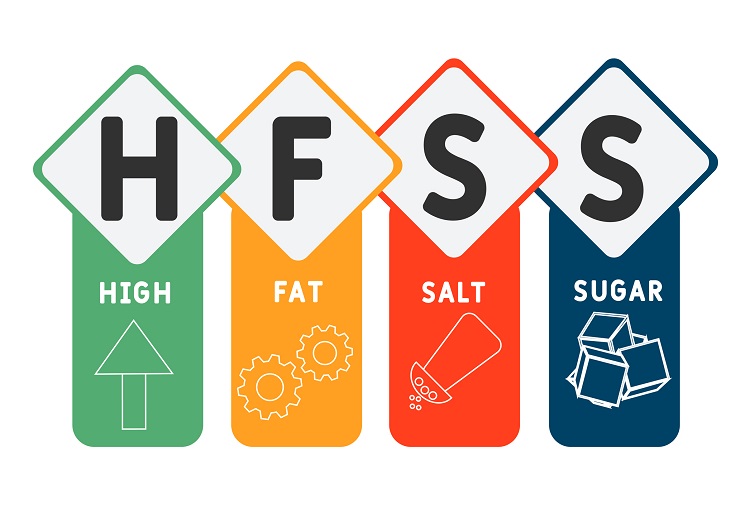
The first phase of restrictions on products containing HFSS in the UK has been in place for almost two years.
The UK government has imposed restrictions on the in-store marketing of products high in fat, salt and sugar (HFSS). The UK government has banned secondary promotion locations such as store entrances, end-of-aisle displays and checkouts.
The description of the movie was 'The most significant in-store changes in decadesIn the country.
In just over a year, British manufacturers and brands, and all European exporters of products to the UK, will face further upheaval when the second round of regulations comes into force.
What should companies affected by the new regulations expect?
How to Navigate a Volume Pricing Ban
From October 2025, all HFSS sold in UK products will be subject to an additional ban on volume-based price promotions. Multiple purchases, as well as any other offers stating that additional volumes are free or discounted, will be banned. You may see a sign saying “50 extra %s for free” or “buy 300g to save 10 %s”.
The UK-based advertising regulator, the Advertising Standards Authority, will ban any HFSS products from being advertised on digital TV or pre-watershed during the same month.
The new restrictions will apply to foods that score four or more on the UK's nutrient profile model. The model awards points based on energy, saturated fat, sodium and sugar, as well as fibre, fruit and vegetable and nut content.
All medium and large UK retail stores with at least 50 employees that sell pre-packed food in-store and online will have to comply. This includes franchises and Symbols Group stores. Out-of-home is not affected, with the exception of those offering free refills on sugary drinks.
Mixed messages
After the British election in July, the left-wing Labour Party won a landslide victory, replacing a right-wing Conservative government that had been in power for 14 years. The change raises new questions about its possible impact on the marketing of HFSS.
Before the election, Labour's shadow health secretary, Wes Streeting, said a BOGOF (buy one, get one free) ban was not an option. To see if they are proactive, I would like to collaborate with food and beverage companies.", he said in September last year. Keir Starmer, then leader of his party and now prime minister, announced a ban on junk food adverts before the turning points. He also promised to crack down on social media adverts.
Ian Wright, former chief executive of UK trade body the Food and Drink Federation and industry advocate at Lockton Consulting, has every reason to believe that both HFSS and highly processed foods will be on Labour's radar.
He says the next few years will be fraught with risk for automakers. It has been clear for years that a new administration would target both ultra-processed foods and HFCS.
He adds that "the cost of living and fear of backlash from key constituencies have delayed the implementation of comprehensive restrictions on advertising, promotions or in-store placement of HFSS products." Labour's top priority is saving the NHS, or National Health Service. Food policy will therefore be heavily influenced by obesity reduction targets over the next five years.
Manufacturers must reconsider their economic model in the face of the probable contraction of margins.
Addressing potential challenges
Luke Withers of Lockton, a leading UK food and drink company, says that in the rush to avoid restrictions and reformulate over the coming month, food manufacturers in the UK and Europe should brace themselves for a number of likely issues.
He says: “It is important to keep in mind that the change will affect the entire sector and multiple regions. If regulatory pressures are applied, the race to find enough new ingredients or alternatives may lead the industry to resource shortages or create other supply challenges.
Manufacturers looking to use sweeteners to reduce the amount of sugar in their products will face a flood of concerns and questions. Managing risks and perceptions will be key. Additional risks related to handling, processing and storage must also be considered, as well as the implications for consumer health.
As pressure increases and businesses need to evolve more quickly, companies should also consider the strategic and operational risks that these product and business model changes could pose. A first step should be to review current risk registers to see how changes could either create new risks or alter existing ones. Risks and opportunities should be considered within the broader perspective of consumer behavior and regulation in international markets.
Wright sees an opportunity to work with UK industry to address a common challenge. He says the direction has been known for years and industry must be prepared to take the first steps. The next question is: “Can manufacturers come together and create a coherent, collective and compelling narrative to combat the coming wave of draconian action on ultra-processed foods?”
This would be a serious blow to the mass production model of this industry. So far, neither large companies nor representative bodies have raised the issue of the food industry. "The risk is that the case will be decided by default."



